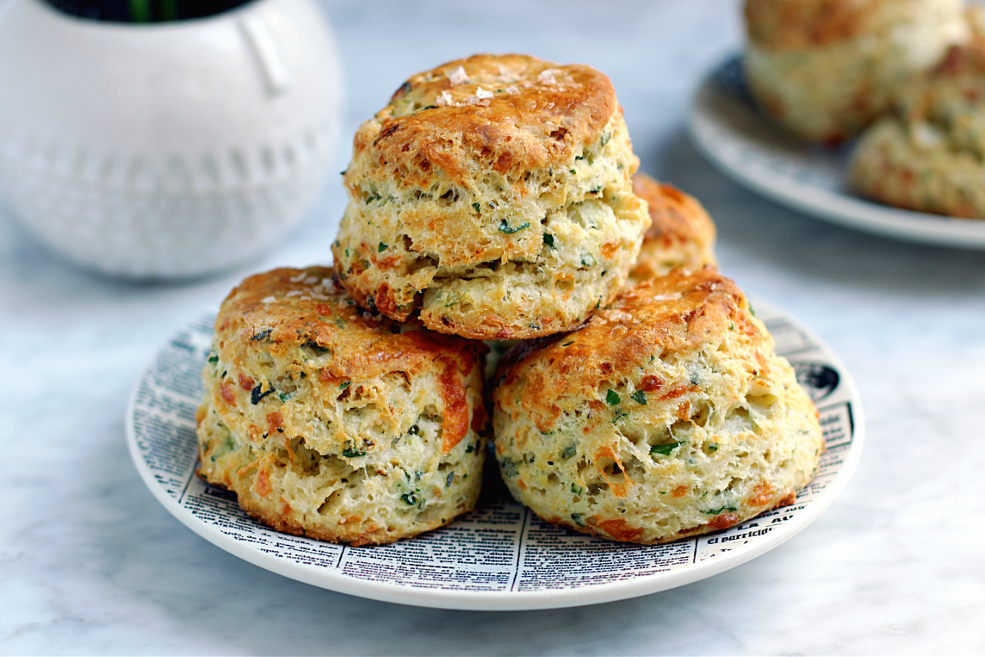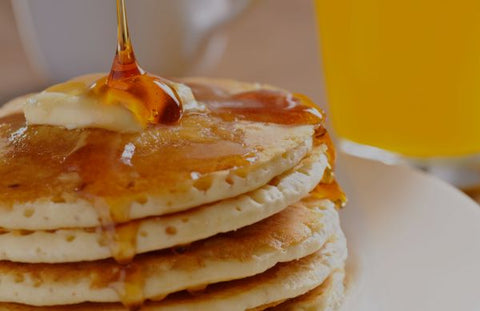How to Make Herb Butter: A Delicious and Potent Recipe
Are you looking for an extra-potent, delicious way to enjoy herbs that doesn't have an overpowering flavor? If so, then this herb-infused butter recipe is the ideal solution. Herbed butter certainly has its charm – it packs a lot of aroma and flavor that makes all kinds of dishes taste even better.
We'll cover grinding techniques to release maximum flavor from dried herbs like rosemary, thyme, oregano and basil. You'll learn ratios for how much butter to use with different amounts of herbs. We'll also discuss infusion methods like simmering the herbs in butter or using an immersion blender. Finally, you can get creative by adding complementary ingredients like garlic, lemon zest, or chili peppers to make custom seasoned butter blends.
With these herb butter recipes, you can elevate everything from bread and vegetables to pasta, meats and more. The concentrated herbal flavor makes a simple dish taste gourmet. Let's get started!
Related Article: Grinding Herbs for Edibles
What is Dried Herb Powder and How Does it Compare to Herb Butter
Dried herb powder and herb butter are two popular ingredients that come with their own unique properties. For those new to cooking with herbs, dried herb powder is the fine powder that results from grinding up dried herb leaves and flowers.
On the other hand, herb butter is the result of infusing fresh or dried herbs into butter or oil, allowing the flavors and aromatics to blend into the fat. While dried herb powder is typically used for rubs, marinades or garnishing dishes, herb butter is often used for sautéing, baking, or spreading on breads.
Both options have their own distinct flavors, potencies, and uses. Dried herb powder packs an concentrated punch of flavor. Herb butter provides a more mellow herbal essence dispersed throughout. So whether you choose dried herb powder or herb butter will depend on your flavor preferences and how you intend to use the ingredients.
Dried herb powders work great for bold seasoning blends using herbs like rosemary, thyme, oregano and sage. Herb butters make an excellent aromatic base for sauces, veggies, proteins and baked goods using herbs like parsley, dill, chives and basil.
What You'll Need to Make Herb Butter
Herb butter is a great way to add aromatic flavor to many dishes. To make herb butter, you'll need a few things: butter or olive oil, fresh or dried herbs, cheesecloth, and a saucepan. The process is relatively straightforward.
Start by melting the butter in a saucepan over low heat. If using fresh herbs, finely chop them. If using dried herbs, crush or grind them into a powder. Add the herbs to the melted butter and allow to gently simmer for 10-15 minutes to infuse the flavors.
When fully infused, strain the mixture through a cheesecloth to remove any solids from the herbs. The end result is a flavorful compound butter that can be used for sautéing vegetables, basting proteins, spreading on breads/muffins or even freezing to add herbal notes to future dishes.
Some great herb options include parsley, dill, chives, rosemary, thyme, sage, basil and oregano. You can use a single herb or create custom blends. With a little effort, you can create delicious herbed butters to enhance all kinds of recipes.
Related Article: How to Collect and Use Herb Pollen
General Instructions for Making Herb Butter
Making herb butter from scratch is a simple way to add delicious flavors to many dishes. With just a few basic steps, you'll be able to create tasty herb-infused butter perfect for cooking, baking or spreading.
The process starts with preparing your herbs. If using fresh herbs, finely chop them. If using dried herbs, lightly crush or grind them into a powder. This helps release their oils and aromas.
Next, melt some butter in a saucepan over low heat. You can use salted or unsalted butter. Add your prepared fresh or dried herbs to the melted butter. Gently simmer the mixture for 10-15 minutes, stirring occasionally, to allow the butter to become infused with the herb flavors.
Finally, strain the herb butter mixture through a cheesecloth or fine mesh strainer into a bowl or container. Discard any solids left behind. Allow the infused butter to cool completely before using or storing.
That's it! You now have flavorful homemade herb butter ready to use. Try different fresh herb combinations like parsley-garlic, dill-lemon, rosemary-thyme or dried Italian seasoning. The possibilities are endless for adding aromatic herb flavors to bread, vegetables, proteins and more.
Tips and Tricks for Making the Best Herb Butter
Are you looking to elevate your cooking game and try something new? Making herb butter is a great way to add fresh, aromatic flavors to your dishes. The key to making the best herb butter is using high-quality, flavorful herbs.
For fresh herbs, look for vibrant green leaves and sturdy stems. Good options include parsley, dill, chives, basil, tarragon and cilantro. For dried herbs, check for rich colors and potent aromas from herbs like rosemary, thyme, oregano and sage.
Finely chop or lightly grind your herbs to release their oils and flavors before adding to the melted butter. Go slowly and use low heat when simmering the butter and herbs together to prevent burning.
Lastly, strain the herb butter mixture through a cheesecloth or fine mesh strainer before refrigerating or freezing. This removes any gritty particles.
Enjoy your flavorful herb butter on bread, pasta, vegetables, proteins and more. But remember, a little goes a long way, so start with small amounts as herb butters can be potent. Get creative with custom blends like garlic-herb, lemon-dill or Southwestern spices. Happy cooking!
5 Delicious Recipes to Make with Herb Butter
Herb butter, made by infusing butter with fresh or dried herbs, is a versatile ingredient that can add incredible flavor to your favorite recipes. From savory to sweet, there are endless possibilities when it comes to exploring the world of herb butter recipes.
Whether you're looking to make creamy mashed potatoes, savory garlic bread, or even a batch of herbaceous shortbread cookies, herb butter has got you covered. It offers bright, aromatic flavors that complement a wide range of dishes.
So why not give it a try and start experimenting with these tasty herb butter recipes today?
1. Herb Butter Biscuits - buttery biscuits packed with flavors from an herb butter like dill, chives, or parsley.
2. Herb Butter Mashed Potatoes - Creamy mashed potatoes taken to the next level by folding in herb butter like garlic-thyme or rosemary-sage.

3. Herb Butter Popcorn - A movie night classic enhanced with melted herb butter drizzled over fresh popcorn.

4. Herb Butter Shortbread Cookies - Buttery shortbread cookies with an herby twist from mixing in flavored butter like lemon-thyme or basil-garlic.

Herb Butter Mac and Cheese - There's nothing more comforting than a big bowl of mac and cheese, especially when you add some herb butter to it! This classic dish will get a whole new level of flavor with this special ingredient. 
Herb-Filled Pancakes - Merge herbs with flour and baking powder for a perfect combination. Pancakes are ideal for breakfast, lunch, dinner, or even dessert. In minutes, you will have a nutritious, delicious and elevated experience.

Enjoy your delicious herb-infused creations! Just remember to start with small doses and adjust according to your individual tolerance. Have fun in the kitchen and enjoy all the wonderful benefits of herb butter.
Storage Considerations for Your Herb Butter
If you're a fan of adding fresh herb flavors to your cooking, then you'll want to try making herb butter. This tasty concoction is made by simmering butter and aromatic herbs together, resulting in a flavorful infusion that's perfect for baking, sautéing or simply spreading on bread.
However, it's important to keep in mind that herb butter needs to be stored properly in order to maintain its vibrant flavors and prevent spoilage. To begin with, ensure that you're using an airtight container to store your herb butter. A sealed glass jar or food-grade plastic container works well for this purpose.
Next, keep your herb butter refrigerated as the cool temperature will help it retain its quality for longer. Exposure to heat and light can cause the delicate herb flavors to degrade more quickly.
For best results, use refrigerated herb butter within 2-3 weeks. If you need to store it for longer, herb butter can also be frozen for up to 6 months. Simply thaw it in the refrigerator before using.
Following these simple storage guidelines will ensure that your homemade herb butter remains fresh, flavorful and ready to enliven your favorite recipes. Proper storage helps maximize the bright taste of your freshly-made herb butter.
Related Article: The Best Way to Store Herb Pollen
The Advantages of Herb Butter Over Traditional Butter
Herb butter presents a distinct array of benefits compared to traditional butter, particularly for those interested in incorporating the therapeutic properties of herbs into their cooking or seeking a fresh culinary adventure.
Enhanced Flavor Profile Aromatic Compounds
Herb, such as rosemary or thyme, contains aromatic compounds that contribute to its fragrance and taste. When infused into butter, these compounds can impart a subtle yet distinctive flavor that enhances a wide range of dishes, from pastries to savory sauces. Therapeutic Benefits Herbal Content: Apart from traditional herbs, herb butter contains various beneficial compounds such as antioxidants and anti-inflammatory agents that offer therapeutic effects, including pain alleviation and stress reduction. Integrating herb butter into meals can provide a flavorful and healthful way to incorporate these properties into your diet.
Customizable Strength
Unlike store-bought herb-infused products, preparing your own herb butter enables you to adjust the potency according to your preferences, ensuring you receive the desired therapeutic benefits without any undesirable effects. Versatility in Cooking Alternative to Regular Butter: Herb butter can be seamlessly substituted for regular butter in any recipe, making it highly versatile. Whether you're baking cookies, sautéing vegetables, or preparing a sauce, herb butter can effortlessly become a staple in your culinary endeavors.
Conclusion
Herb butter offers an enjoyable way to incorporate herbs into your cooking. Not only does it possess a milder herb flavor compared to conventional herb-infused butters, but it also provides increased potency. By following our herb butter recipe and the recommendations we've provided, you can create delightful herb-infused dishes effortlessly.
Additionally, if you're seeking further inspiration, visit our blog for ten delightful recipes that you can prepare using your homemade herb butter. With these resources at your disposal, we encourage you to unleash your creativity in the kitchen and explore the delightful culinary possibilities of herb-infused dishes!
So, embrace this culinary skill and let your taste buds embark on a journey of flavorful exploration! Bon appétit!


Leave a comment
Please note, comments must be approved before they are published